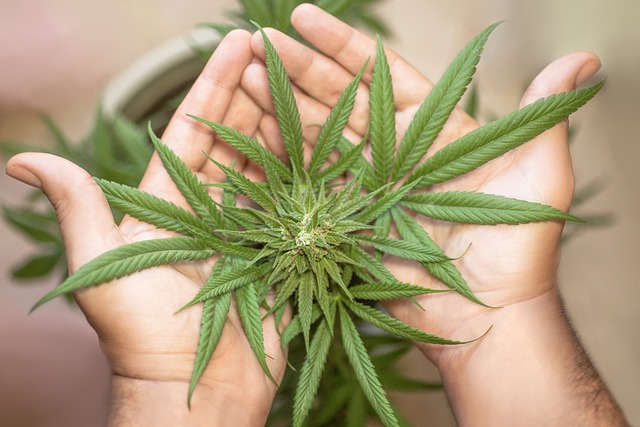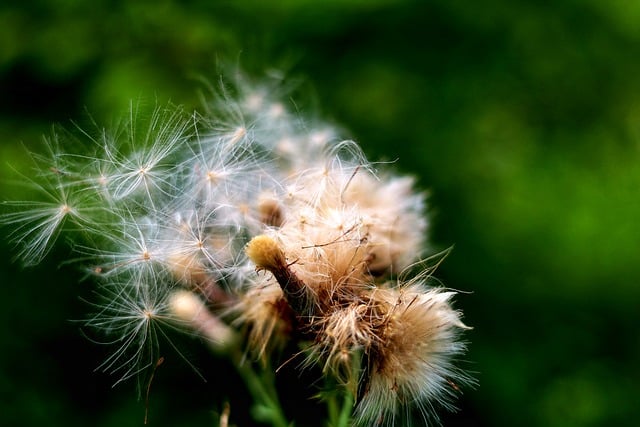THCA, or Tetrahydrocannabinolic Acid, a non-psychoactive compound found in raw cannabis plants, has become a topic of interest for its potential health benefits and legal status, particularly in Arizona. In this state, THCA products with less than 0.3% THC are classified as hemp and fall under different regulations than those governed by the Medical Marijuana Act (MMA) for higher THC content products. This classification is important for consumers and producers in Arizona, as it affects the legal processing, sale, and consumption of THCA flower. Users should be aware that while THCA does not induce psychoactive effects like its decarboxylated form THC, it can still cause mild side effects and may affect motor skills, necessitating caution against driving or operating machinery under its influence. It's advisable to start with a low dose of THCA to understand personal tolerance and to consult healthcare providers before using it alongside other substances to avoid potential adverse interactions, especially for those with existing health concerns or who are on other medications. THCA is legally available in Arizona, offering consumers the opportunity to explore its benefits while complying with state regulations, but always with a focus on personal safety and informed decision-making.
Exploring the emergence of THCA flower within Arizona’s regulatory framework, this article sheds light on its implications and legal standing. As interest in cannabinoids grows, understanding THCA flower side effects becomes paramount for Arizona residents. Delving into safety considerations and the potential impacts of THCA flower consumption, this piece offers a comprehensive overview of what to anticipate when engaging with this compound legally in Arizona.
- Understanding THCA Flower: Implications and Legal Status in Arizona
- THCA Flower Side Effects and Safety Considerations for Arizona Residents
Understanding THCA Flower: Implications and Legal Status in Arizona

In recent times, the conversation surrounding cannabinoids has expanded to include THCA or Tetrahydrocannabinolic Acid, a non-psychoactive precursor to THC found in raw cannabis plants. As interest grows, so does the curiosity about the legal status and implications of THCA flower in states where cannabis legislation is evolving. In Arizona, the landscape for cannabis-related substances has been shaped by both voter initiatives and state regulations. THCA, specifically, occupies a unique position within this framework. Legally, THCA flower is distinct from its psychoactive counterpart, THC; in Arizona, products containing more than 0.3% THC are classified as marijuana and are subject to the state’s Medical Marijuana Act (MMA). However, THCA flower itself, which typically contains less than 0.3% THC, is often categorized under hemp and thus falls under different regulations. This distinction is crucial for consumers and producers alike, as it determines how the substance can be legally processed, sold, and consumed within Arizona’s borders. Consumers should be aware that while THCA flower may offer potential health benefits and has been noted for its therapeutic properties, it is imperative to stay informed on local laws and regulations governing its use and possession. As such, the implications of using THCA flower in Arizona are shaped by both the promise of its non-psychoactive advantages and the legal framework that governs its handling. Users should always prioritize understanding the specific legalities within their jurisdiction when considering incorporating THCA flower into their wellness routines.
THCA Flower Side Effects and Safety Considerations for Arizona Residents

THCA, or Tetrahydrocannabinolic Acid, is a non-psychoactive cannabinoid found in the Cannabis sativa plant that has garnered attention for its potential therapeutic properties. In Arizona, where THCA-rich flowers are legal under state laws, it’s important for residents to understand both the benefits and the side effects associated with its consumption. While THCA itself does not induce psychoactive effects like its decarboxylated form THC, it may still cause certain side effects. These can include mild psychoactive effects if heated, dry mouth, red eyes, and potential drowsiness. Additionally, individuals may experience anxiety or paranoia at higher doses. Safety considerations for Arizona residents include not driving or operating machinery under the influence, as THCA can impair motor skills. It’s also crucial to start with a low dose to gauge personal tolerance and to avoid combining it with other substances without medical advice due to potential interactions. For those incorporating THCA flower into their wellness routine, it’s advisable to consult with a healthcare provider, especially if they have underlying health conditions or are taking other medications. Understanding the legal status of THCA in Arizona is essential for residents who choose to explore its potential benefits, ensuring that they do so within the confines of state laws and with appropriate caution.
In light of the comprehensive review of THCA flower’s implications, legal status, and safety considerations in Arizona, it is evident that while this cannabinoid holds potential benefits, it is imperative for users to be well-informed about its side effects. As outlined, understanding the nuances of THCA’s legal standing within the state is crucial for safe consumption. Residents interested in exploring THCA flower should approach it with caution, paying close attention to individual sensitivities and the recommended dosage to mitigate potential adverse reactions. With continued research and legal clarity, Arizona residents can make informed decisions regarding the use of THCA flower, ensuring a responsible and beneficial experience within the framework of state laws.
